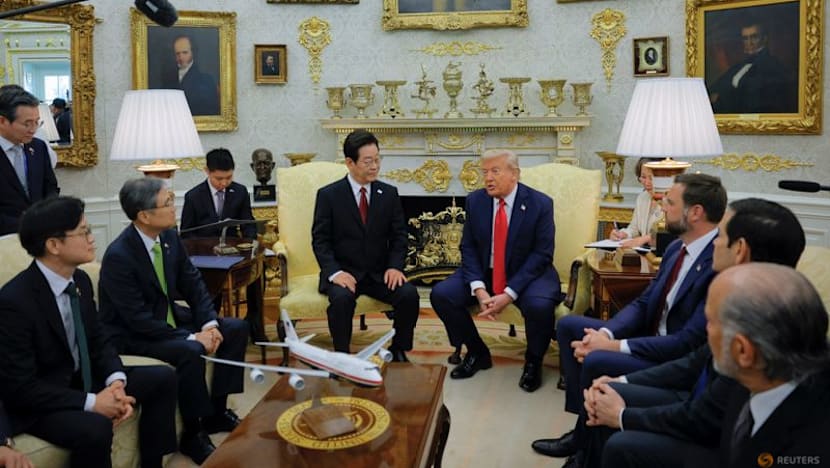World
South Korea Rejects Trump’s $350 Billion Tariff Payment Proposal

South Korea has firmly stated that it cannot provide the proposed upfront payment of US$350 billion to the United States, as suggested by President Donald Trump. This announcement came from a senior adviser on September 27, 2023, highlighting the ongoing tensions surrounding a tariff deal between the two nations.
In July, a preliminary agreement was reached between the leaders of South Korea and the United States to reduce tariffs from 25 percent to 15 percent. However, the specifics of the investment commitment have become a point of contention. South Korean officials have clarified that the US$350 billion would not be paid in cash but rather through loans, loan guarantees, and equity investments.
Wi Sung-lac, South Korea’s National Security Adviser, emphasized during an interview on Channel A News that the nation’s position is not merely a negotiation tactic. He stated, “The position we’re talking about is not a negotiating tactic, but rather, it is objectively and realistically not a level we are able to handle.” He further asserted that a cash payment of US$350 billion is simply unfeasible for South Korea.
The South Korean government pledged the investment to support U.S. projects in July, but has since expressed concerns regarding U.S. demands for control over the funds. As a result, negotiations to formalize the trade agreement have stalled. In recent remarks, Trump indicated that this investment amount would be required “upfront,” which South Korean officials fear could destabilize the nation’s economy.
Earlier this week, Trump highlighted the financial benefits of his tariff policies, stating, “We have in Japan it’s US$550 billion, South Korea’s US$350 billion. That’s upfront.” This assertion has raised alarms within the South Korean administration. President Lee Jae Myung had previously warned that without proper safeguards, such as a currency swap, a substantial cash outlay could lead to a financial crisis for South Korea, which currently holds foreign exchange reserves of US$410 billion.
Wi reiterated the importance of discussing alternative solutions, indicating that South Korea aims to finalize the trade deal with Washington during the upcoming Asia-Pacific Economic Cooperation (APEC) summit, which South Korea is set to host next month. The presence of Trump at this summit could present an opportunity to resolve the ongoing trade negotiations.
As the situation develops, South Korea remains committed to exploring viable paths forward, while firmly rejecting the notion of an immediate cash payment of US$350 billion. The outcome of these discussions may have significant implications for both economies in the coming months.
-

 Lifestyle4 months ago
Lifestyle4 months agoHumanism Camp Engages 250 Youths in Summer Fest 2025
-

 Business5 months ago
Business5 months agoKenvue Dismisses CEO Thibaut Mongon as Strategic Review Advances
-

 Sports4 months ago
Sports4 months agoDe Minaur Triumphs at Washington Open After Thrilling Comeback
-

 Sports5 months ago
Sports5 months agoTupou and Daugunu Join First Nations Squad for Lions Clash
-

 Top Stories5 months ago
Top Stories5 months agoColombian Senator Miguel Uribe Shows Signs of Recovery After Attack
-

 World5 months ago
World5 months agoASEAN Gears Up for Historic Joint Meeting of Foreign and Economic Ministers
-

 Health4 months ago
Health4 months agoNew Study Challenges Assumptions About Aging and Inflammation
-

 Business5 months ago
Business5 months agoOil Prices Surge Following New EU Sanctions on Russia
-

 Entertainment4 months ago
Entertainment4 months agoDetaşe-Sabah Violin Ensemble Captivates at Gabala Music Festival
-

 Entertainment4 months ago
Entertainment4 months agoBaku Metro Extends Hours for Justin Timberlake Concert
-

 Top Stories5 months ago
Top Stories5 months agoRethinking Singapore’s F&B Regulations Amid Business Closures
-

 Business5 months ago
Business5 months agoU.S. House Approves Stablecoin Bill, Sends to Trump for Signature









